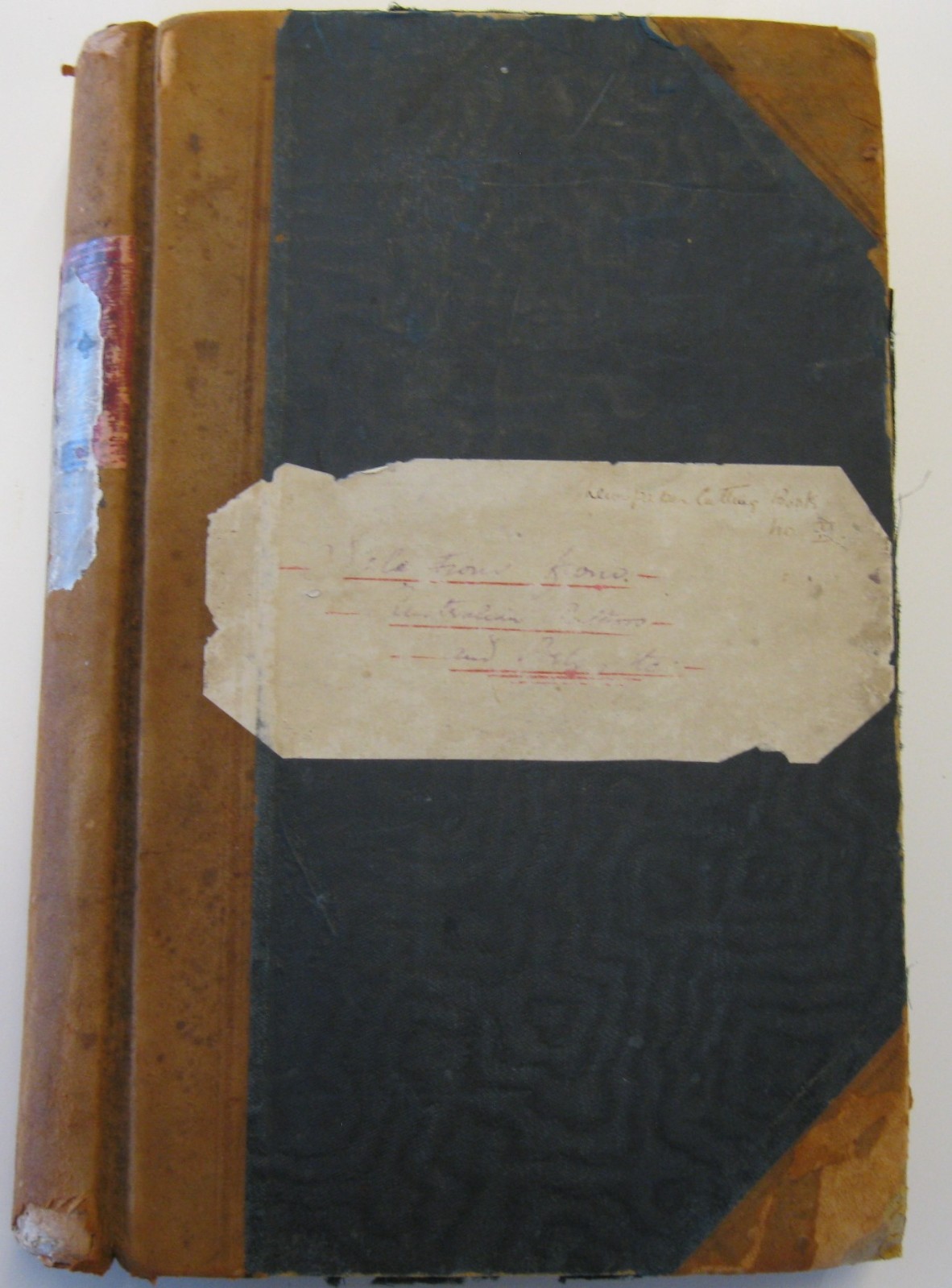
A recently discovered treasure from the John Oxley Library collection is a 348 page cutting book containing Australian World War I poetry, (OM 92-68). The poems, which cover the period 1914-1919, were published in The Bulletin magazine and the Sydney Mail newspaper, and provide a wonderful compilation of the works of various poets, many of them soldiers in the front lines.
The Bulletin magazine was first published in Sydney on the 31st January 1880 and was highly influential in Australian culture and politics until after World War I. Its main focus was politics and business, although it also had a strong literary character. The publication served as a platform for young and aspiring writers to showcase their short stories and poetry. Notable Australian writers who were associated with The Bulletin include Henry Lawson, Steele Rudd, Ethel Turner, Dorothy Mackellar, Harry (Breaker) Morant and Banjo Paterson.
The poets, writing about World War I, include Ethel Campbell (known as the Angel of Durban), John Sandes (who wrote under the name of Oriel), Henry Lawson, Mary Hannay Foott, Will Lawson, Major Oliver Hogue writing as "Trooper Bluegum", and Arthur Henry Adams to name but a few. Themes of national pride, patriotism honour and gallantry are prominent and sustain the idea that Australia found her identity and became a nation during the bloodshed, tragedy, and sacrifices of the war.
A small selection of the poems appear below:
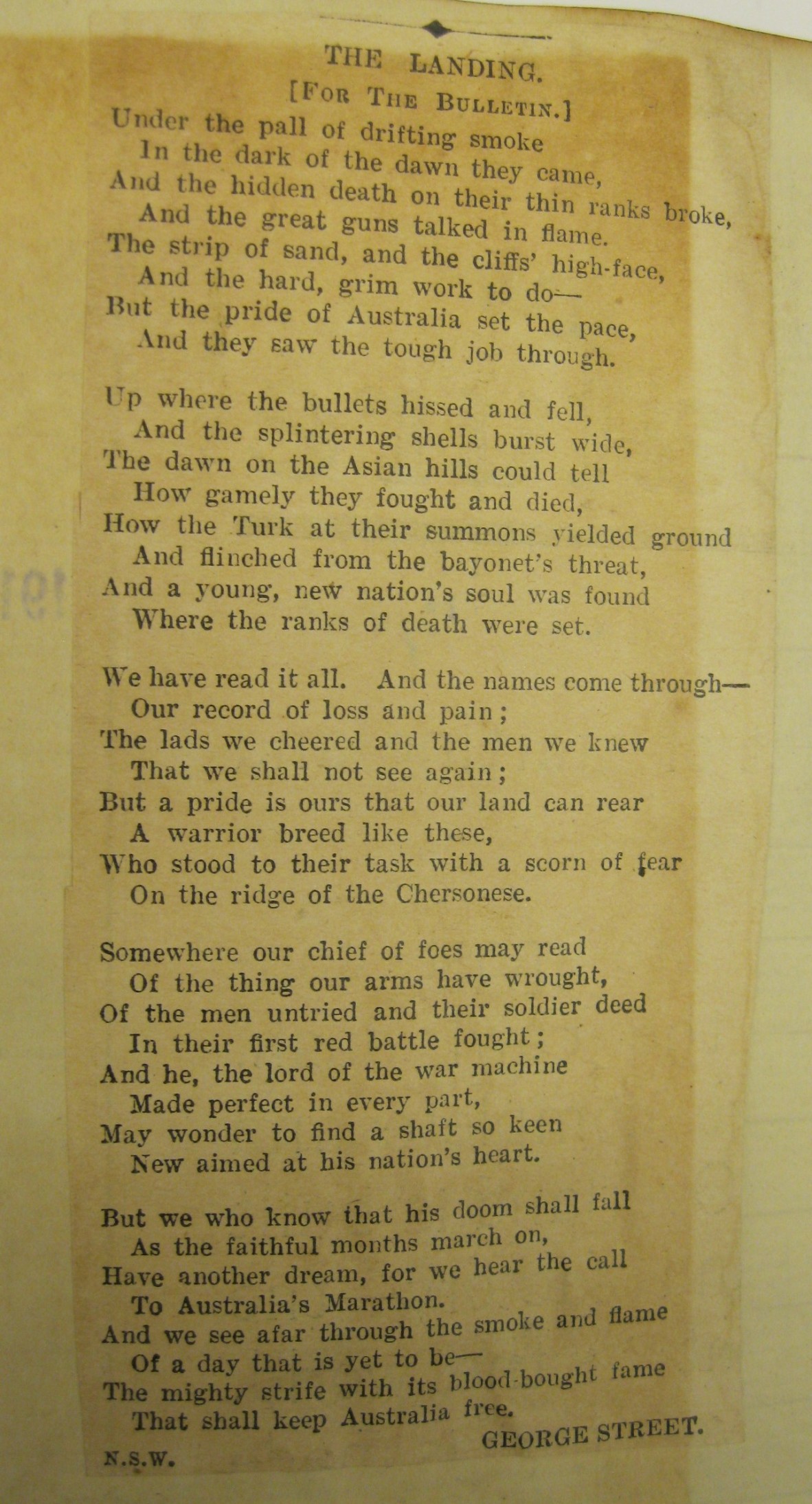
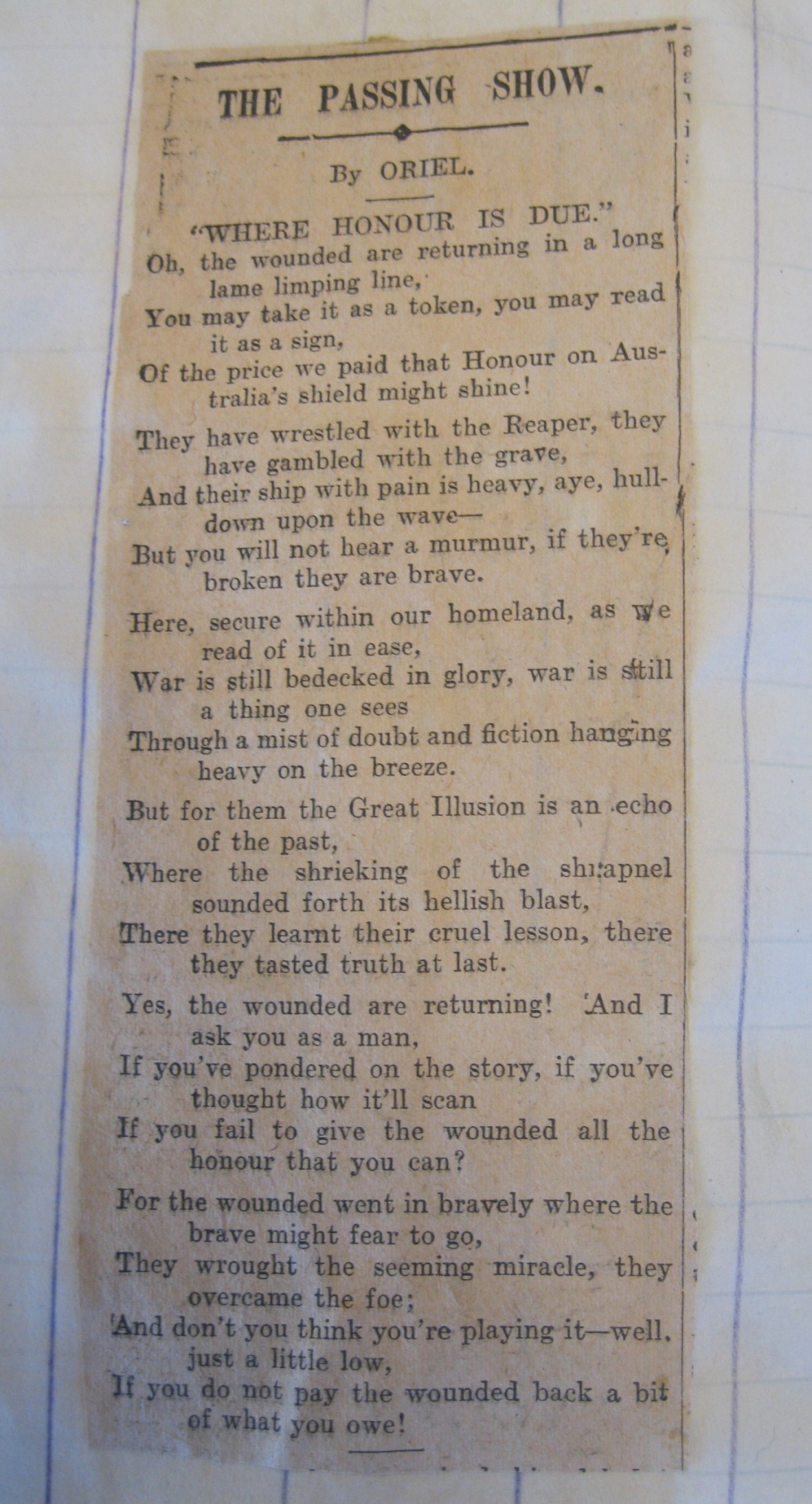
"Where Honour is Due" by John Sandes, writing as "Oriel".
John Sandes was a journalist, poet and novelist from Ireland who settled in Australia in 1887. During the Boer War he published a compilation of his poetry entitled Ballads of Battle (1900) which "foreshadowed many poetic responses to World War I" with an emphasis on patriotism, honour and duty. (Australian Dictionary of Biography, Volume 11, 1988). His World War I poetry follows this tradition and was an early formulation of the "Anzac legend" of bravery, honour, independence and mateship.
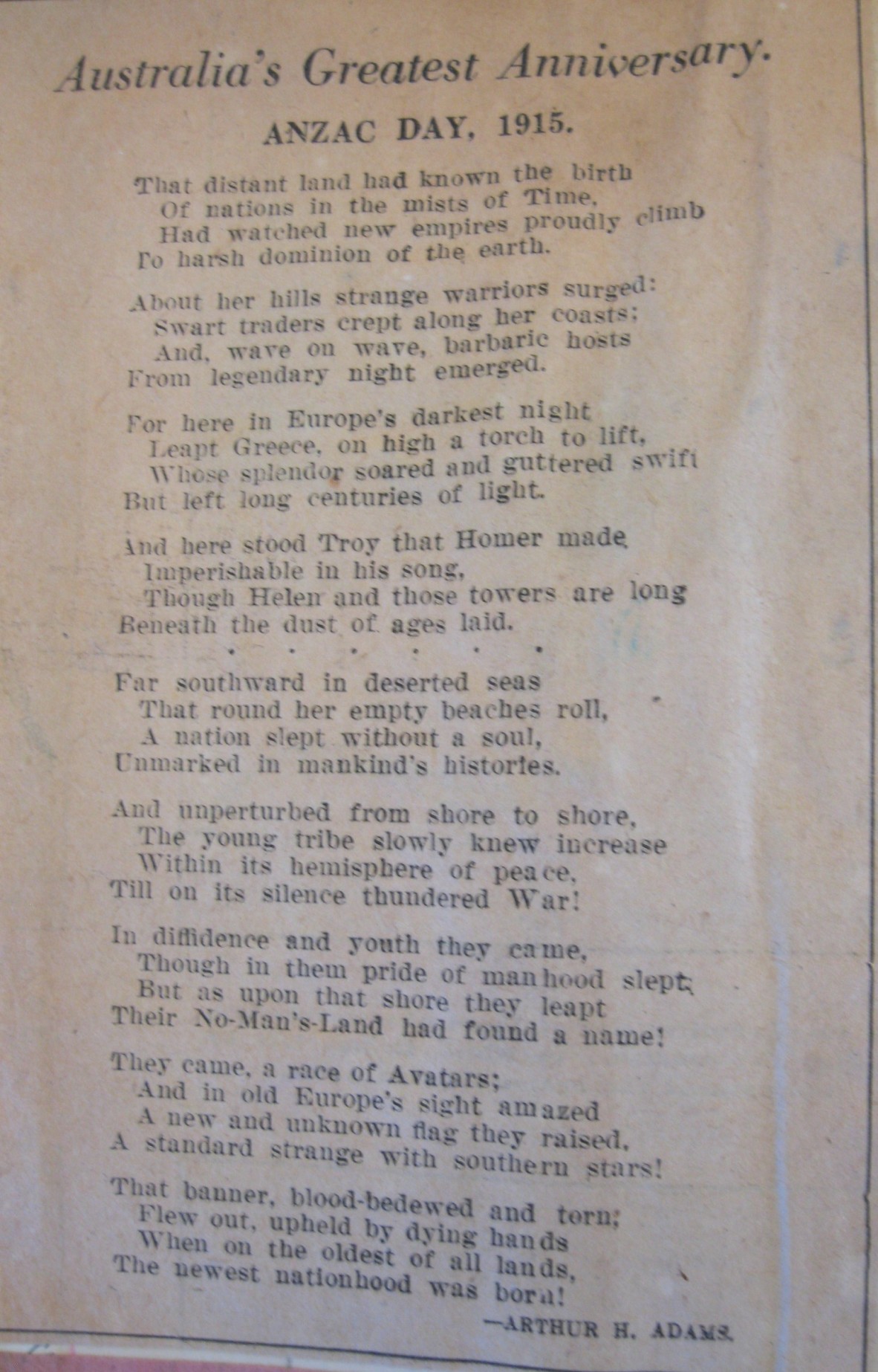
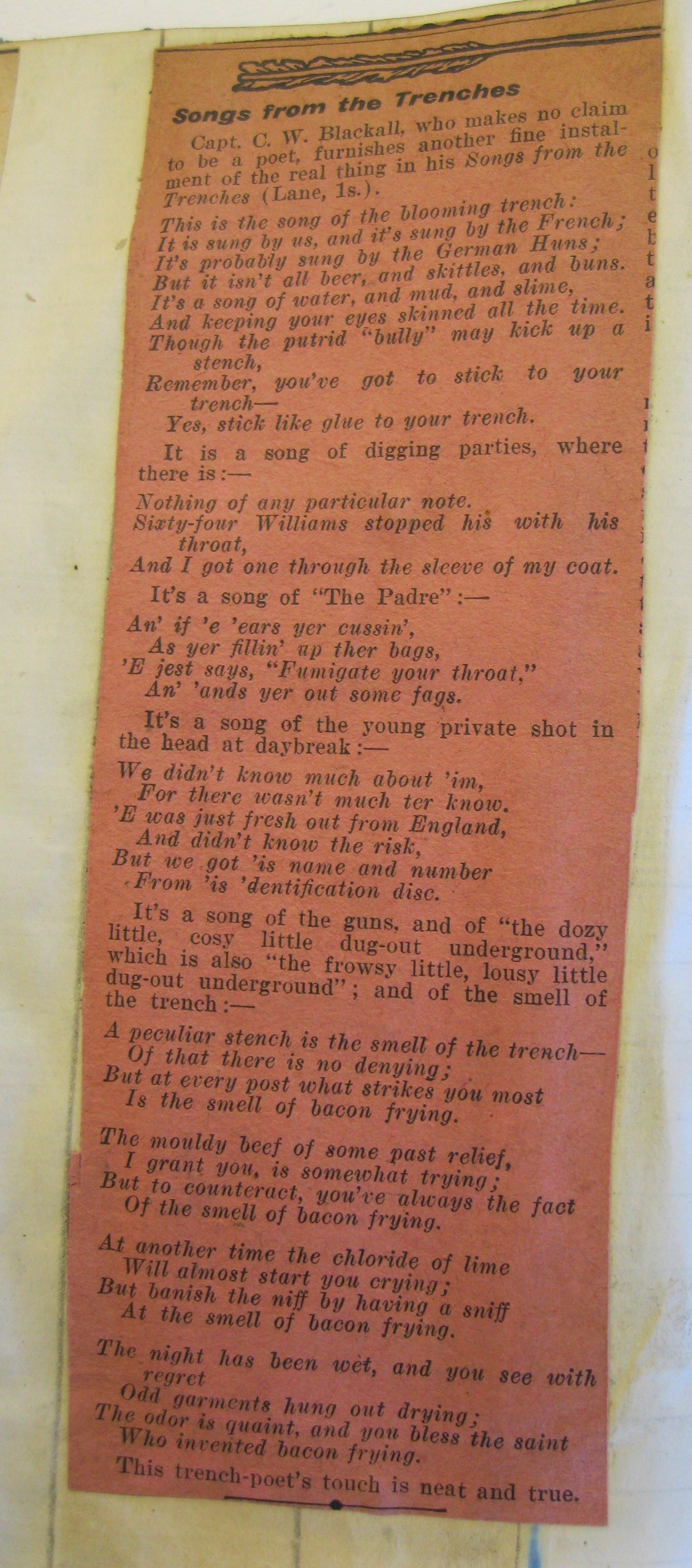
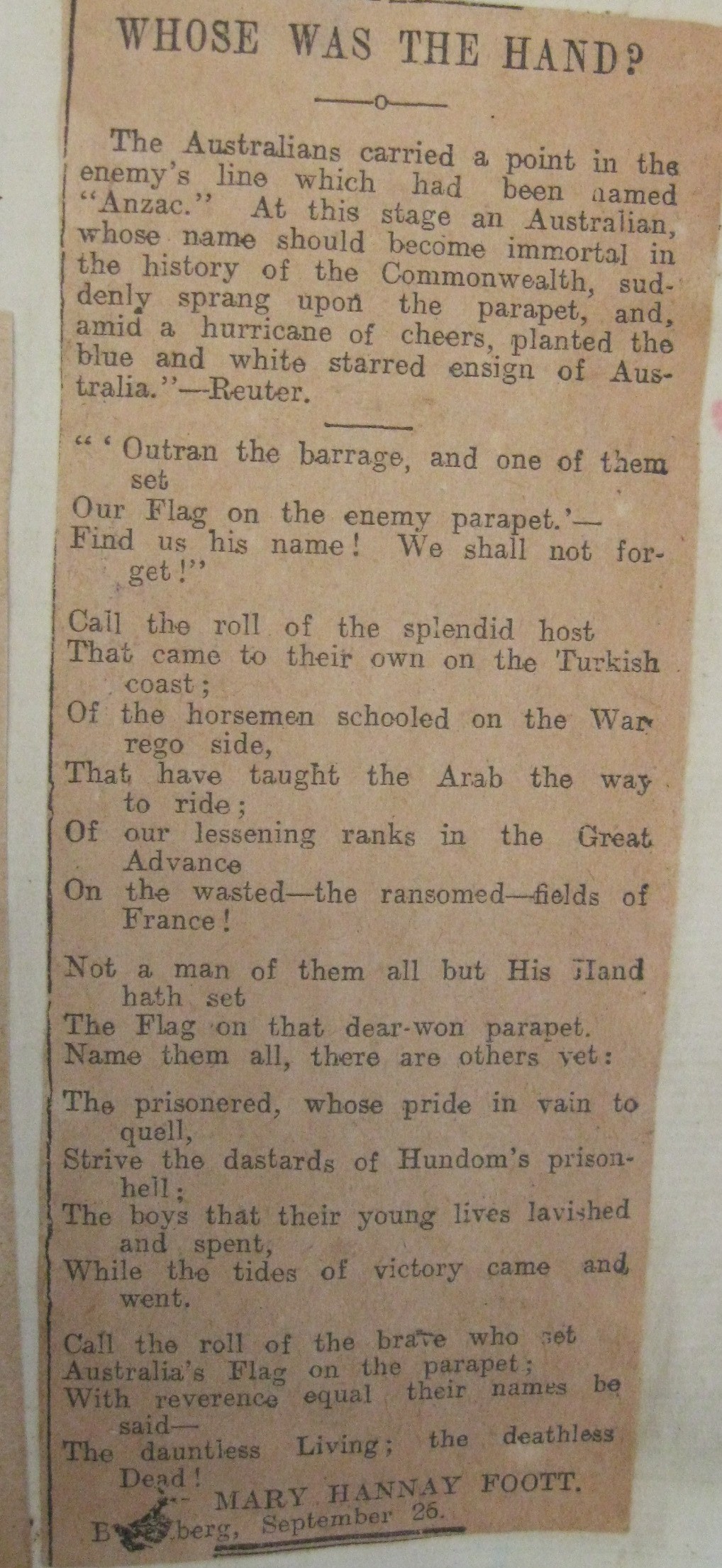
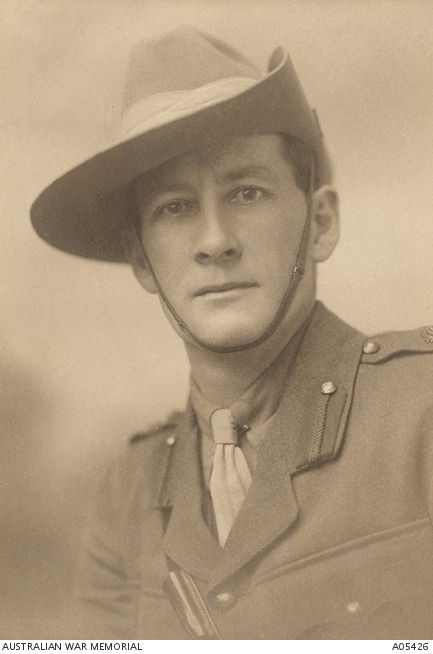
Major Oliver Hogue, ca. 1915. Australian War Memorial, ID number A05426.
Major Oliver Hogue was a journalist before his enlistment in September 1914. He served as a light horseman with the 2nd Light Horse Brigade at Gallipoli and later commanded the 14th Light Horse Brigade during the campaign which drove the Turks out of Palestine and Syria. He was a talented poet and immortalised his experiences in three books "Love Letters of an Anzac", "Trooper Bluegum at the Dardanelles" and "The Cameliers". Hogue survived the war, but sadly died of influenza on the 3rd March 1919 in London. Some examples of his work are below:
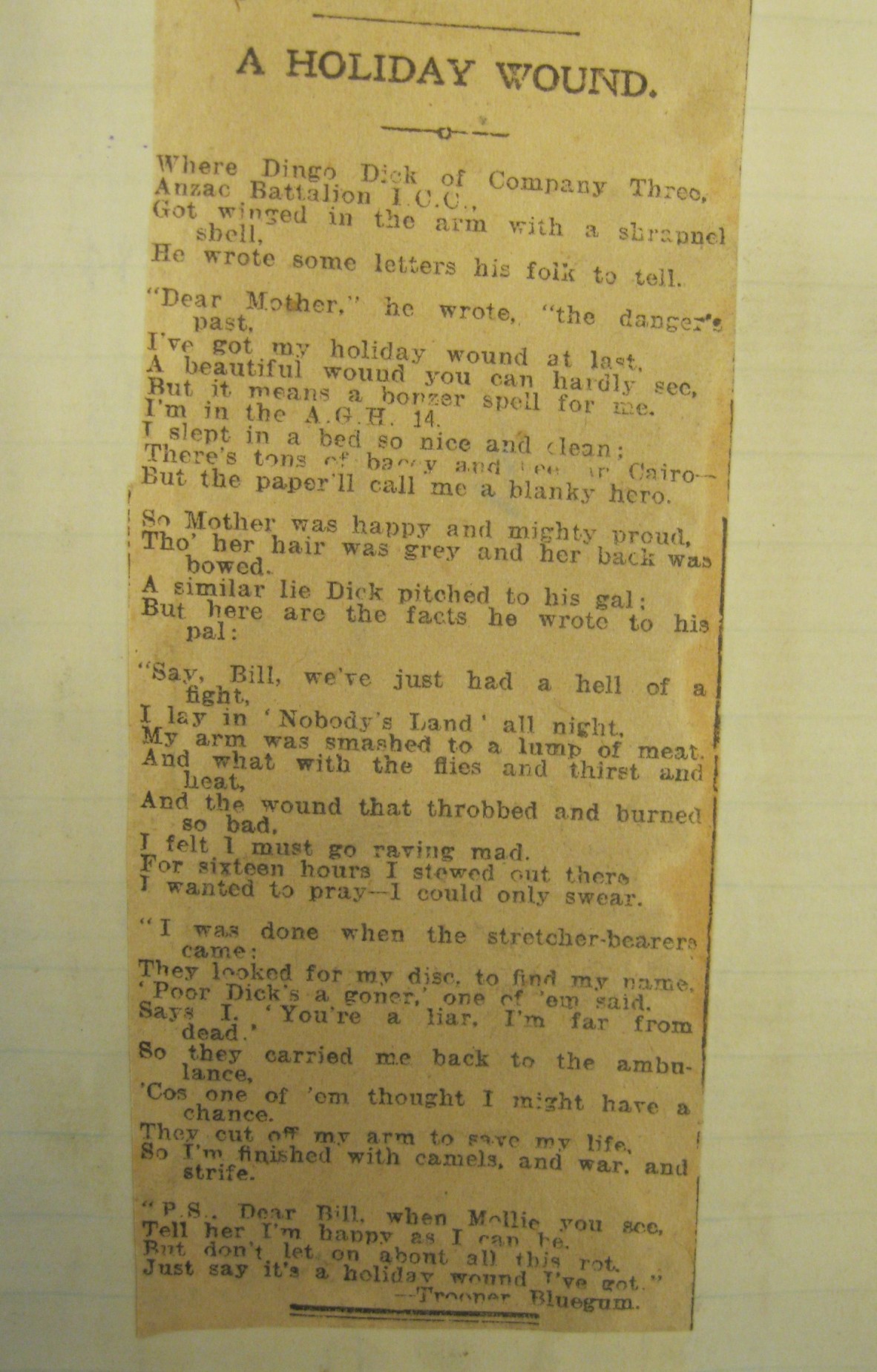
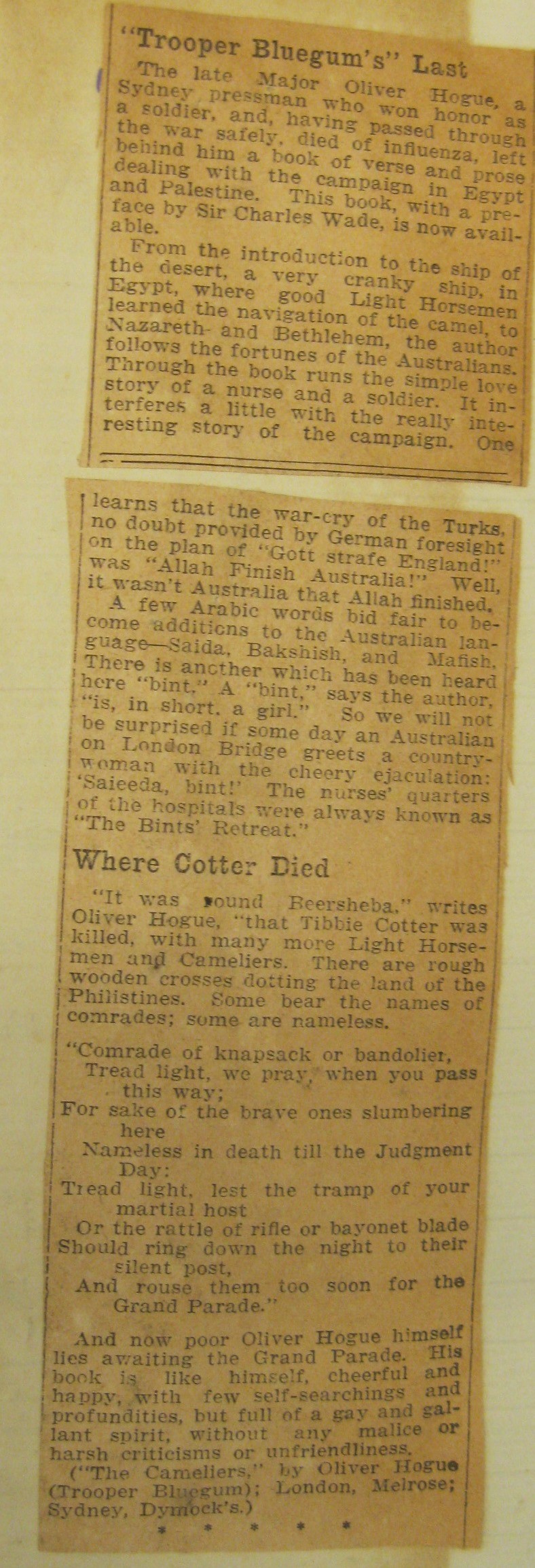
The cutting book also contains an interesting article by Bertram Stevens entitled Australian War Literature in which he reviews some of the most notable war books which were written by Australians engaged in the conflict. The article appeared in the Sydney Mail, 12th March 1919 and may be viewed at: http://trove.nla.gov.au/newspaper/page/16893580
This remarkable cutting book, Poetry Clippings 1914-1915 (OM 92-68), may be viewed at the John Oxley Library and provides a wonderful insight into Australian society during the First World War.
Lynn Meyers, QANZAC100 Content Curator
Comments
Your email address will not be published.
We welcome relevant, respectful comments.